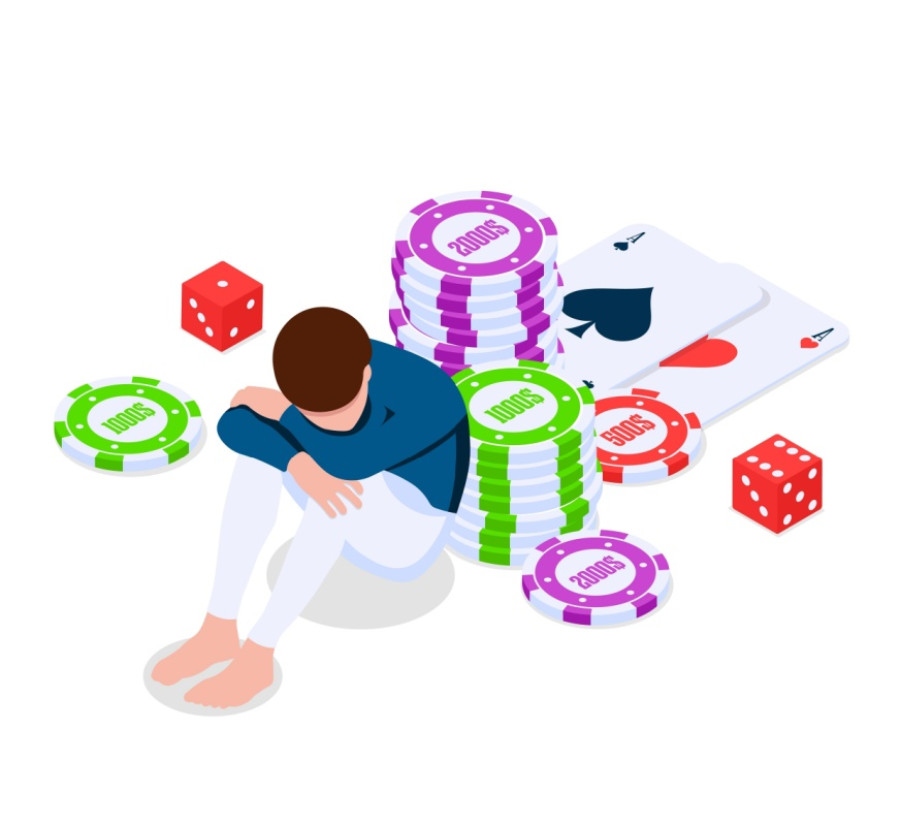Columns
The huge cost of problem gambling
Societies across the world must act more responsibly to mitigate its adverse effects.
Chandan Nandy
Humans have gambled throughout history. It is one of the oldest activities that people across the world, irrespective of how advanced and sophisticated their social and cultural histories are, have engaged in and clung to.
Indeed, gambling has been so pervasive in the human consciousness that it has assumed precision and advancement, including its harnessing by technology.
Gambling was prevalent in ancient India, China, Rome, Egypt, Peru and Japan. Late 19th century historians found evidence of “gaming tables engraved or scratched on the marble or stone slabs, for the amusement of idle men, always ready to cheat each other out of their money” in ancient Rome.
Over time, the acceptance of gambling varied from culture to culture.
In the ancient Indian epic, Mahabharata, the reference to the game of the dice was central to the unmaking of a princely clan which put everything—including their kingdom and their queen—at stake. It is a prime instance of gambling’s so-called immorality and the social and economic harm that it can cause.
Gambling is essentially a game of chance or hazard. While in the past it was viewed as recreation and entertainment—it remains so across many countries—more recent scholarly studies increasingly view the motives for gambling as highly complex.
At the same time, problem or pathological gambling is seen as an addiction and, therefore, a mental health problem, with socially and financially destructive consequences.
So culturally embedded gambling has been in India that card games, with money on stake, is a routine feature in households celebrating the goddess of wealth, Lakshmi, during Diwali, the festival lights.
Crude gambling games such as teen patti and matka continue to be played in India’s crowded megacities even as online gambling sites and betting apps have boomed with the penetration of technology. A recent study found that the illegal betting market receives as much as $US100 billion in annual deposits.
In India, betting and gambling are strictly prohibited under the Public Gambling Act, and are considered illegal across most regions. However, successive Indian central governments have taken little interest in enforcing a blanket ban with the only legal forms of gambling being state-run lotteries, horse racing, rummy card games and casinos.
More recently, the Indian Central Consumer Protection Authority issued an advisory prohibiting advertising, promotion and endorsement of unlawful activities. With this, the authority sought to caution that advertisements or endorsements of activities otherwise prohibited by law shall be subjected to rigorous scrutiny. It warned that any violation of the guidelines would invite “stringent measures”.
In the West, the mental health consequences of gambling have been extensively studied, but the subject has not been a focus of interest for researchers in India even as compulsive betting in cricket matches (since the early 1990s) and now the proliferation of online betting micro-sites and apps indicate.
It is generally accepted that a “bad beat”—significant financial loss at gambling—acts as a “catalyst” for a condition known as problem gambling.
Several consecutive losses can “disorient perceptions” and lead to a continuing pattern of financial setbacks which, in turn, causes mental health disorders, including substance abuse, anxiety and depression, that need prolonged psychiatric and other treatments.
The permissiveness of gambling varies from country to country. Each country can address the issue of gambling in general, and problem or compulsive gambling in particular, from their own cultural perspectives.
On a general plane, experts suggest greater legislation and funding is needed on prevention, awareness, treatment and research, particularly in India. Government, private and charitable efforts to mitigate the mental health impact of gambling need to be more responsible.
More importantly, instead of dismissing or challenging research findings, online gaming industry members can address the problem of gambling with more coordinated efforts.
-360info




 9.6°C Kathmandu
9.6°C Kathmandu















